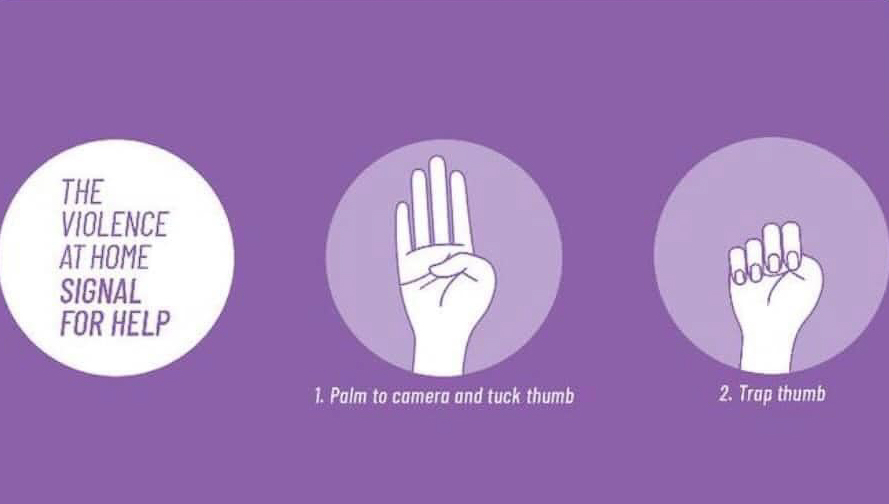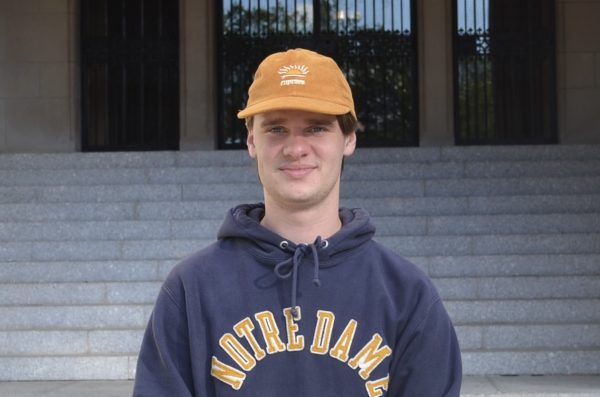Domestic Violence Hand Signal Finds Missing Teen and Shows Power of TikTok
Domestic violence occurs all too frequently, and it is hard not to feel powerless when trying to think of solutions for the problem. But when a missing North Carolina teenager was found after using a domestic violence help signal popularized on TikTok, the future looks more hopeful.
It would be foolish to not take advantage of the rapid growth in technological capabilities this generation has witnessed. Many of the news stories we hear now first break on social media instead of radio or television. This transition emphasizes the importance of fully understanding Generation Z as news consumers, since teenagers and young adults are heavily entrenched in social media. In fact, an estimated 60% of TikTok users are members of Gen Z. Personally, I prefer to keep up with current events on social media, specifically TikTok.
Quite frankly, it seems backwards that this missing teen was located because of a strategy made known by other teenagers, instead of one put in place by law enforcement. This should serve as a wake up call that the current system has failed. Public officials should modify the way that they communicate urgent information by recognizing the cultural importance and power of social media.
Public service announcements on the radio just aren’t cutting it anymore; they need to be delivered on more accessible platforms. Streaming these announcements through social media platforms would have the intended effect, encouraging younger people to reach out to authorities with potentially life-saving information. Communicating with them using these resources would encourage teens to become more involved with their communities.
Similarly, there is a lot of room for improvement when it comes to educating younger generations. This particular situation was eye-opening for me because I was unaware of the hand signal that alerted people to a domestic violence situation until I read the article on this topic. Such information is crucial to share and it should be more widely broadcasted on social media. Countless lives can be saved if those who are suffering are able to find a way to indicate that they need help.
In fact, it was through an Instagram post that I learned of the angel shot, a drink that you can order at a bar or restaurant to alert bartenders and servers that you are in danger. The angel shot itself can be ordered in different ways, each way signifying a varying level of danger. This information is crucial for everyone, not just younger generations. If it weren’t for social media, I probably wouldn’t have heard of this either.
TikTok has (and should continue to utilize) the ability to spread awareness about these issues. In the past, it was certainly easier for abusers to get away with their inexcusable actions because there was not as much awareness about hidden behaviors.
It is common for victims of abuse to be unsure about what truly constitutes abuse. However, social media can be used to bridge this gap. As people feel comfortable sharing their stories about domestic violence, younger generations have the unique opportunity to learn from the experiences of others and what to look out for. Social media can thwart abusers because of this newfound discourse among domestic violence survivors, making it more difficult for abusers to deny their actions or manipulate the truth. While this does not eliminate the threat of abusers, it can be used as a cautionary and partially preventive measure.
Social media has many downsides; that is why it is often a topic of criticism. Nevertheless, it is clearly here to stay and this incident proves it might not be such a bad thing. Apps like TikTok have an incredible way of reaching an audience of millions in mere minutes. When it comes to life-threatening situations, those few minutes could make all the difference. Public officials need to reform their current methods of educating the public and utilize the resources right in front of them. Social media, if used in the right way, could be a fantastic tool for law enforcement and an educational resource for citizens.
Carolyn Branigan, FCRH ’24, is a film and English major from Tinton Falls, N.J.








































































































































































































